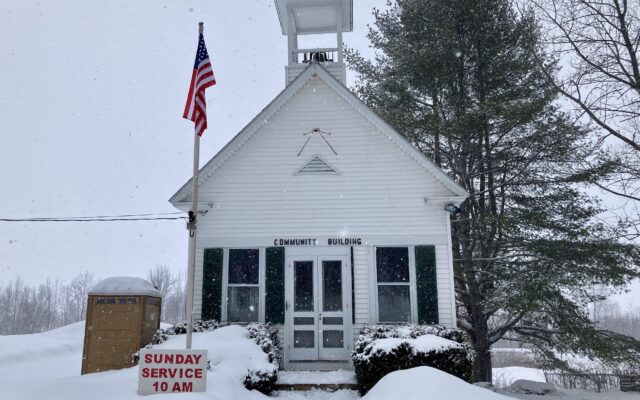
Small Maine plantation won federal funding to renovate building with unique past
LAKE VIEW PLANTATION — A remote Piscataquis County settlement that owns only one structure, a building that locals estimate is more than 130 years old and has functioned as a church and schoolhouse, plans to use $75,000 in federal funding to renovate the space.
Lake View Plantation residents and visitors consider the quaint white building with pink, orange and green stained-glass windows on its sides as the gem of the community on Schoodic Lake.
It’s unclear when the Community Building, as it’s called, was built, but church services were first held there in 1891, according to “Schoodic Lake Revisited,” a book written by area historian Bill Sawtell, who died last month.
There are bits and pieces of the building’s history in books and online, but many of those with longtime connections are no longer alive to tell its stories, said town clerk Barbara Reed, who married her second husband at the church in 1986.
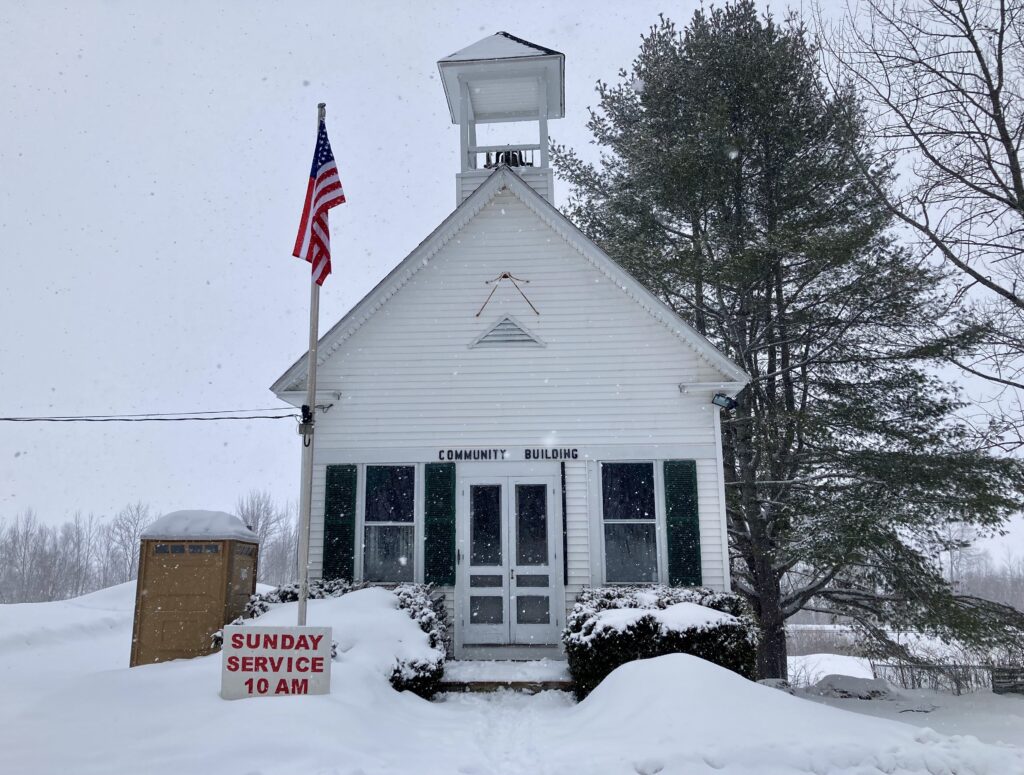
HISTORIC RENOVATIONS — Lake View Plantation is using $75,000 in federal funding to renovate its historic Community Building, pictured March 2.
For many years, the building functioned as a church in the summer months and space for local groups, such as the Schoodic Lake Association and road associations, to meet. For the last two years, an area doctor and minister and his wife have cultivated a small church community that meets each Sunday, no matter the season.
Some of the plantation’s 150-plus residents attend church, while others have little connection to the building, but the general sense is that it must be preserved as the only remaining piece of Lake View’s identity, according to the three elected assessors who manage the town. It has held a stable presence for decades, so it must live on for the people who still use it, they said.
“That’s how we all feel. We keep it because it is history,” said Second Assessor Claude Williams, who has served on the board for about 20 years.
And $75,000 for renovations, approved as part of the $1.7 trillion omnibus spending bill, will help with those preservation efforts. It also means the assessors won’t need to seek taxpayer money, unless the work surpasses that amount.
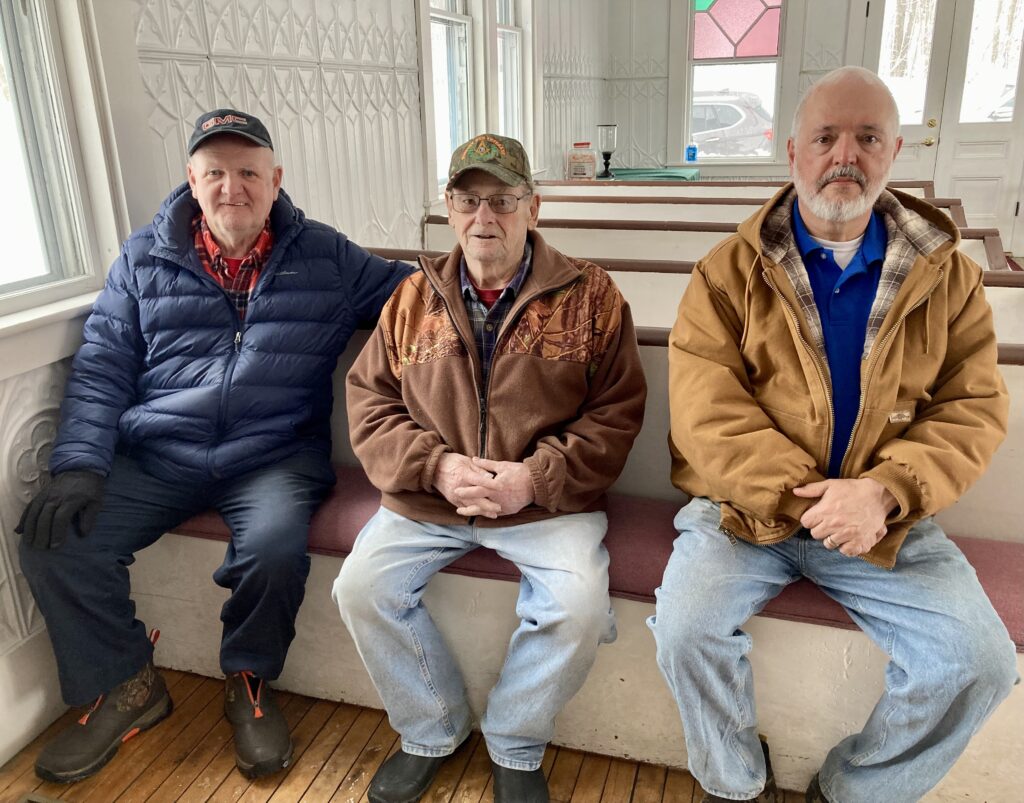
ASSESSORS — From left, Lake View Plantation’s elected assessors are pictured: Donald Martin, Claude Williams and Kenneth Jay.
The town is expected to receive the funding later this year, though it depends on the completion of a grant agreement and other materials, including an environmental review of the project, according to a spokesperson at U.S. Sen. Susan Collins’ office.
Renovations would be cosmetic fixes and upgrades, such as refurbishing the pews, addressing a few leaks in the ceiling and refinishing the hardwood floors, First Assessor Kenneth Jay said. The assessors predicted the work won’t be completed anytime soon, given today’s supply chain issues and challenges with finding an available contractor.
Collins, who serves as vice chairperson of the Senate Appropriations Committee, said the building is a focal point in the town. It’s why she advocated for the project’s inclusion in the 2023 government funding law — “to help ensure that this important community resource can continue to serve Lake View Plantation,” she said in a prepared statement.
New insulation was put in about a year ago, which taxpayers approved for $5,000, assessors said. A thermostat is programmed to heat the building on Sundays. There is no bathroom, but a portable toilet is available outside.
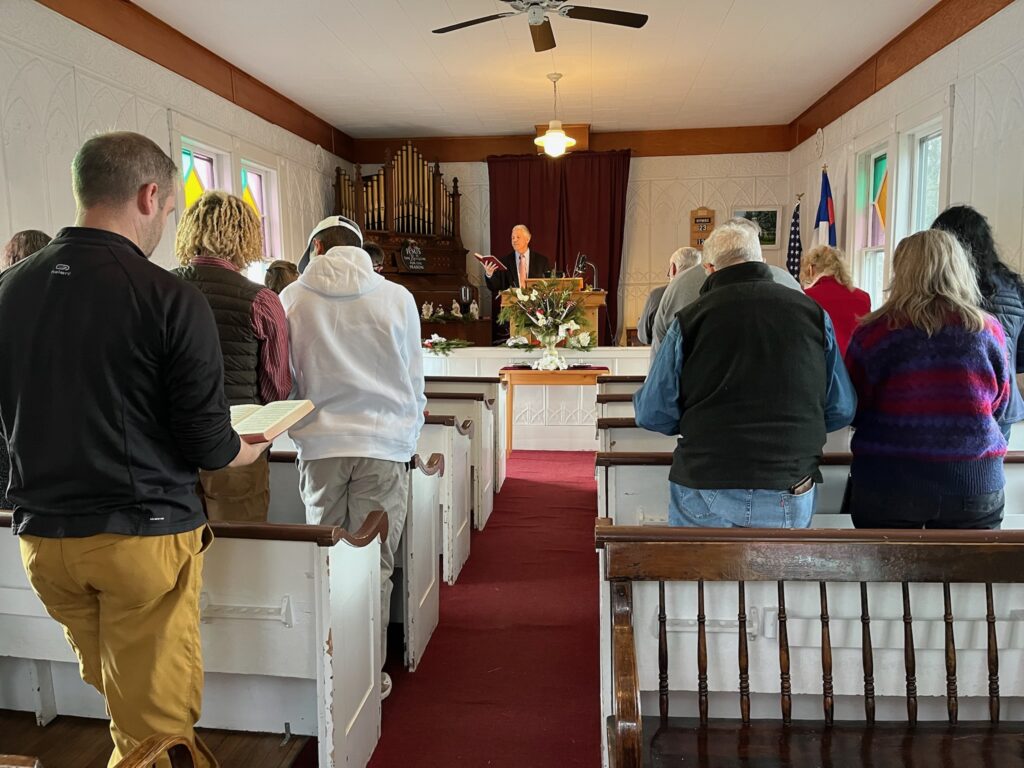
WORSHIP SERVICE — Pastor Scott McLaughlin leads worship at Lakeview Community Church.
Besides the main room where church services are held — with white detailing on the walls, pink-cushioned pews and an old, large organ in the corner — the building has a basement. It was used years ago for wedding receptions, birthday parties and refreshments after church, Reed said.
There was also a time when town meetings were held on the main floor and elections took place in the basement, she said.
Now it’s only used in the warmer months for church gatherings and Bible study groups.
Reed, who moved to the town 46 years ago and lives a quick walk away from the building, remembers when the church only operated in the summer. She attended for a period of her life, when locals and campers from different denominations attended and an organist from Milo performed.
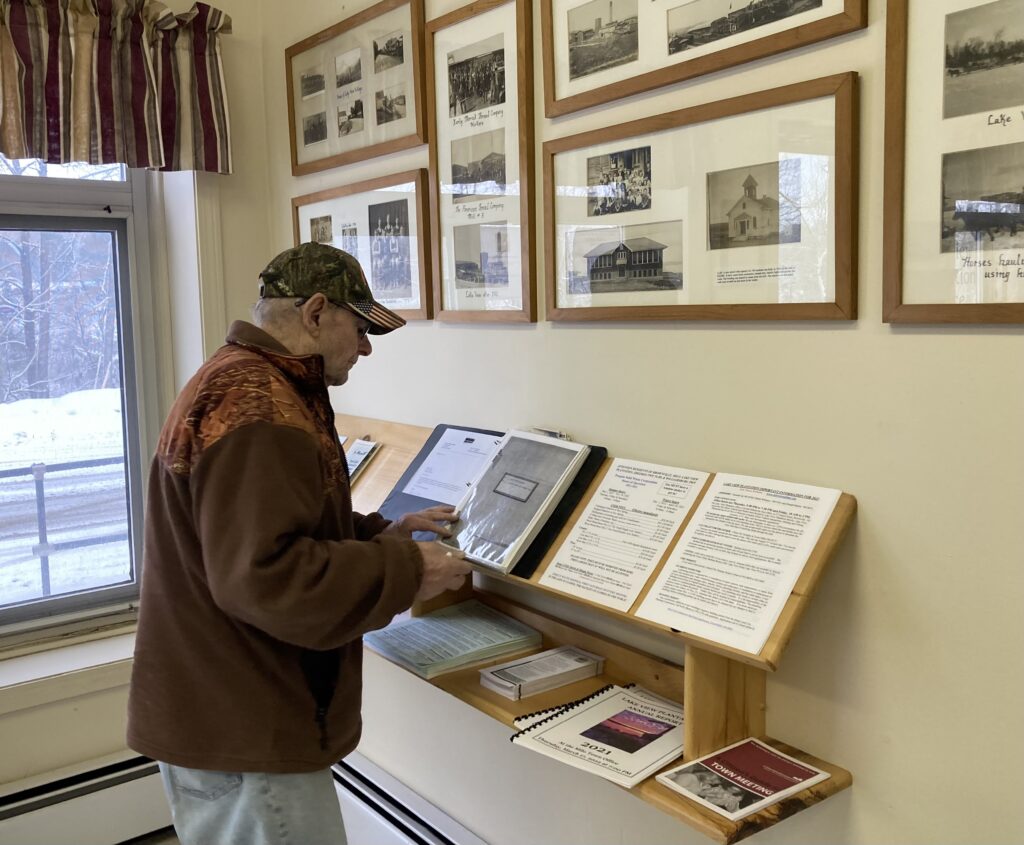
COMMUNITY HISTORY — Claude Williams, Lake View Plantation’s second assessor, flips through pages about the community’s history at the municipal office on Thursday.
“The campers would be parked along the whole street,” she said. “Some would walk up, while others would come by boat, park and walk up to the church. It was really nice.”
Information at the municipal office, based in Brownville, offered some hints about the building’s past. An old, undated photograph explains that the assembly room had stained-glass windows, steel ceilings and walls and an organ, among other features. The basement was fully equipped for the Junior Dept. of Sunday School, according to the description.
A certificate from the International Sunday School Association, dated April 28, 1923, hangs on the wall and honors the organized class from that time. A photograph in the corner shows a group of men standing in front of what appears to be the building, with the stained-glass windows visible behind them.
Decades ago, Lake View Plantation had several schools built as the needs of the community changed. When one burned down in December 1918, a new one that housed 100 children and cost $20,000 was built. Ultimately, declining enrollment forced its closure after the American Thread Co. spool mill went out of business.
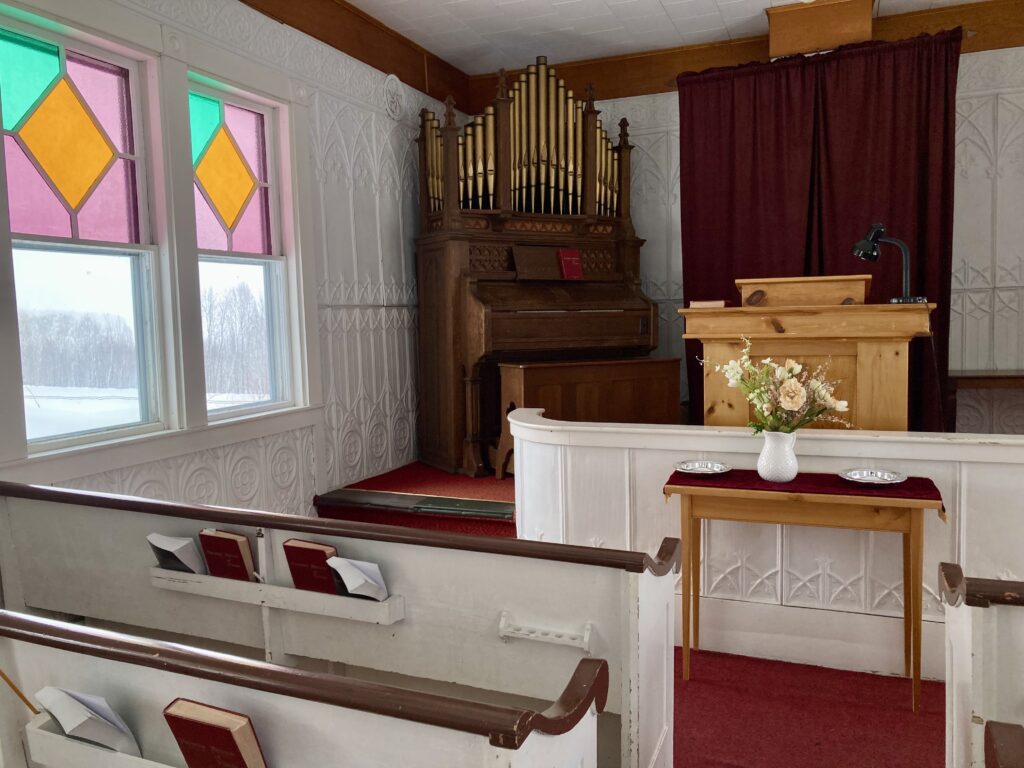
INTERIOR — Lake View Plantation will use federal funds to renovate its historic Community Building, which primarily is a church. The building’s interior is pictured March 2.
Children began attending school in Milo, where families found mill jobs, but the few kids remaining in Lake View gathered for classes taught by one teacher at the church, which was Protestant, according to “Images of America: Milo, Brownville and Lake View,” a book put together by area historical societies.
“We’re grateful that we’re able to be there and use the space for the purpose [for which] it was manifested,” said Tara McLaughlin, who runs the church with her husband, Scott McLaughlin.
He is the minister and also works as a doctor at Northern Light Health’s facility in Sangerville. Scott McLaughlin stepped away from medicine for four years when the couple traveled to Knoxville, Tennessee, in 2015, to study for Bible college. They felt called to Piscataquis County and returned to the area.
Tara McLaughlin estimated that 50 people could fit in the building. Lakeview Community Church, which they call the congregation, sees about 18 regulars who come to worship, she said. Sometimes visitors stop by and share that they were married at the church.
The church has baptized people in Schoodic Lake, offered vacation Bible school, and through its outreach, has even aided people in vulnerable situations, including a man who was experiencing homelessness and living in his car, said Tara McLaughlin, who used to work as a nurse. He is now living in a safe facility and is able to access medication for his diabetes, she said.
Tara McLaughlin has kept a journal of what’s been happening over the last two years.
“I feel that it’s important to the history of this place that we have a record,” she said, noting that 100 years from now, there will be stories to tell future generations.